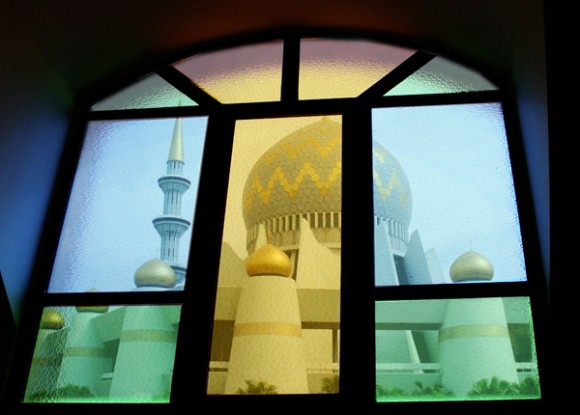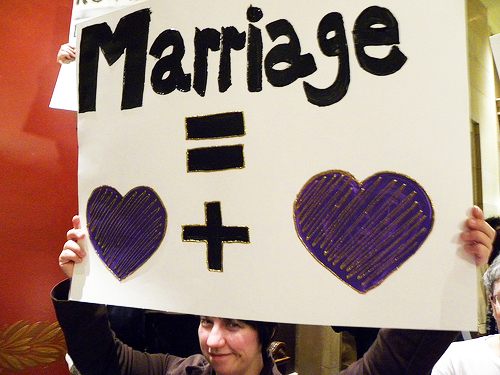ON 31 March 2012, up to 300 national school Pendidikan Islam teachers in Johor attended a seminar at the state education department in Johor Baru. The seminar was titled “Liberalism, pluralism and apostasy: What is the role of teachers in defending the faith?”. Its original title was “Strengthening the faith, the dangers of liberalism and pluralism, and the threat of Christianisation towards Muslims: What is the role of teachers?”. The contentious words about Christianity were eventually dropped from the title following staunch protests and criticisms.

The incident showcased some exasperating ironies – not least the fact that the seminar’s original title was defended by Minister in the Prime Minister’s Department Datuk Seri Jamil Khir Baharom. Jamil advises the Committee for the Promotion of Understanding and Harmony among Religions.
The incident also foregrounded the difficulty of resolving seemingly conflicting freedoms. Jamil was quoted as saying that the seminar was “within the jurisdiction” of the state as “the state has the right to safeguard the interests of Muslims”. In contrast, the Malaysian Consultative Council of Buddhism, Christianity, Hinduism, Sikhism and Taoism called it a “very serious violation” of nationally shared values.
In a pluralistic public space, who gets to claim what, and why?
Religious rights and wrongs
Two days before the seminar, I had attended a party at my university, themed “We are all Exeter: Celebrating diversity and fundraising party”. It wouldn’t have taken place if Exeter College had not come under fire for leasing out its premises for a youth leadership conference organised by Christian Concern. The organisation “seeks to put the hope of Christ at the heart of our nation” through media campaigns, political lobbying and legal advocacy.
Exeter students, local community members, and some in the wider activist and university networks had opposed the conference because of Christian Concern’s contentious views. It vociferously argues against same-sex marriage, and it frequently expresses concern about the growth of Islamic influence in the UK.
Certainly, there isn’t an exact parallel between a private educational institution renting its facilities to a polarising religious group and a government department organising a polarising religious event. But there are some instructive similarities.
For one, both Christian Concern and supporters of the “Christianisation threat” seminar argue that they have a historic legal right for their actions. In discussing its stance on sexual orientation, for example, Christian Concern states: “Sexual orientation is being given increasing protection under equality legislation … Although both religious belief and homosexuality are protected in some ways under equality law, these two strands are often incompatible with one another … At Christian Concern we stand for freedom of conscience and resist legislation that would restrict historic Christian freedoms.”

In defending the Johor Education Department seminar, Pembela secretary-general Abdul Karim Omar said: “There is a trend to question the efforts to strengthen the faith of Muslims. … Efforts like this seminar are guaranteed rights under Article 11(4) of the constitution … The powers under this [Article] put Islam at its proper place, as the religion of this country.”
Degrees of freedom
Setting aside the question of how historic these rights really are, it is crucial to interrogate the scope and legitimacy of these claims. Some of the claims made by Christian Concern and certain Malaysian Muslim quarters – for instance, that Islamic banking has grievous consequences for the UK, and that Valentine’s Day is too Christian and too debauched to celebrate – do not demand too much consideration here. But some other claims clash in ways that warrant thoughtful and open discussion.
It’s unsurprising, but no smoother for the predictability, that there is friction when the two most active missionary religions in the world share political space. In a church service I once attended in England, congregants were encouraged to attend seminars on how to engage with Islamic theology from a Biblical perspective. That’s the nature of a missionary religion: if you believe its truth, you want to share it.
But many of us are bad at sharing. Well-intentioned efforts to spread faith often yield division rather than inclusion. Apart from certain exceptions, such as restrictions against proselytising to Muslims in Malaysia or hate-speech regulations in some countries, the vast majority of these efforts are protected under freedom of speech laws. And they should be, no matter how exasperating they are.
Nevertheless, there is a categorical difference between an individual Muslim/Christian who calls Christianity/Islam a threat, and Perkasa secretary-general Syed Hassan Syed Ali who asserted that the Bar Council should defend the Johor government’s freedom to hold a seminar on the purported threat of Christianisation.
The difference lies in the fact that private opinions can derive legitimacy from personal beliefs, but policy claims over public resources require the legitimacy of public consensus.
Hence the repugnance in the seminar, as expressed in a Christian Federation of Malaysia statement: “Taxpayers’ money … being used to pay for, and civil servants … being asked to attend, a seminar that seeks to sow disunity and discord amongst school-teachers and, through their influence, amongst our schoolgoing children.”
Bulat air kerana pembetung

Not that the public-private distinction is necessarily always crystal clear. For example, Exeter College and Christian Concern are private entities. But they both play very public roles as part of Oxford University and as a political pressure group respectively – which is why the incident hit both the national press and international activism websites.
More importantly, the legitimacy of the protest against holding the conference at Exeter had an internal source: the students within the shared space of the college, many of whom voted to endorse a statement disagreeing with Christian Concern’s views. If the college’s primary goal is educating its students, and if a potential conference group holds opinions that exclude and vilify students for their religious beliefs or sexual orientation, immediate student well-being should take priority over revenue streams.
For certain, it isn’t always clear how overlapping claims should be negotiated within a nation’s shared space. And even though that is true, it is very clear that the planned “Christianisation threat” seminar misused the shared space and resources of the Malaysian public.
It is also clear that we will not be able to navigate our shared space together until our public officials affirm the fundamental and equal freedoms of all Malaysians within our common home.
As an Exeter student, I’m critiquing my college for its conference policies, which, thankfully, are under review. As a Christian, I’m critiquing Christian Concern because some of its arguments are not presented with Christ-like love. And as a Malaysian, I’m critiquing the Johor education and mufti departments for drawing lines that cannot legitimately define the national space. ![]()
Hwa Yue-Yi recently found that the Election Commission website no longer shows any record of her previously gazetted voter registration. She doesn’t know whether this is a technical glitch or an intentional disenfranchisement. But she will continue to use her freedom of speech to claim her constitutional right to vote.


Andre Das says
The difficulty is in coming to terms with a belief that your religion does not promote pluralism hence there is no reason that you should respect other peoples belief. This also requires separation of State from Religion thus allowing individual rights to be protected and cherished with supremacy of the Constitution, as what is being practised in the USA.
In Malaysia, the supremacy of the constitution has been defiled. The constitution has been amended countless times, sometimes covertly, and the general population kept ignorant on purpose and in a state of paranoia that their belief is under threat so that they will act irrationally without knowing or understanding the facts. EMOTION is always more POWERFUL than LOGIC!!!
Gloria Ayob says
Picking up on Andre Das’s point that there exist interpretations of religion which do not promote pluralism, the difficulty we face is that there is no perspective-independent understanding of what a shared space is.
Even if we can all agree that there has to be a shared public space in any political community, this still leaves unsettled questions about where the boundaries should be drawn and what sharing public space means. Rawls construes the notion of a shared public space in terms of state neutrality, but this assumes a commitment to liberalism (in his sense). The 18th century Ottomans would have had a quite different understanding of how public space should be shared, a notion perhaps construed in terms of the state’s benevolence rather than in terms of the state’s neutrality.
Of course I don’t think that any worthwhile conception of a shared public space would justify the paranoid behaviour currently displayed by Johor’s state education department. Nonetheless, the difficulty we face currently seems to lie in the fact that the notions that shape our communal lives (including the fundamental notions of the Msian constitution, e.g. ‘jurisdiction of the Syariah courts’) are being interpreted variously, according to very different background assumptions.
One result of this is that people feel that they’ve been wronged and that other people are behaving unjustly. If these terms (including the term ‘shared public space) had the same meaning in everyone’s mouth, we could get on with the business of showing why a particular piece of behaviour violates the norms expressed in these terms. But this isn’t the case, so we need to take the more basic step of justifying our preferred understanding of these terms.
gua says
In Malaysia, many of the (Umno) Muslims’ belief in God is just like the roadside medicine seller believing in the medicine he sells.
As their belief is shallow, they like to cling on to empty rethoric which is actually their own shadows. As their faith is weak, they blame it on others .
Gopal Raj Kumar says
There are Indians, Chinese, Europeans, Africans and Mulattoes who worship the same God that members of UMNO worship. Your analogy is offensive and a vilification of both a race of people (Malays who necessarily are UMNO) and Muslims, those who worship and believe in their God. Perhaps it is the charter of the publishers to carry your offending remarks as part of legitimate debate and free speech. You will have your just desserts after the elections I am sure. After all faith is about belief in something for which there is no proof.
Gopal Raj Kumar says
No, it’s Christianity that threatens the world as it has since its inception, its capture by the Romans and its proliferation by madmen over the centuries. That makes the evangelicals and the Catholics, the Protestants and other related cults no different from the “originals” today.
Main says
Christianity is not a threat, [it is] the coming to terms with what has happened in recent times, i.e reports from the Selangor Islamic Dept etc , which has its effects on the minds of Muslims in the country. The department which manages Islamic affairs had to act and the results are the statements.
Don’t all religions promote peace ? In my opinion, a stigma that certain religions are a threat among Muslims or non-Muslims in Malaysia is still manageable…….
Gerrytan says
Christianity is surely not a threat to other religions. But it turns the world upside down. How? Christianity is LOVE. That’s why the Muslims feel threatened.
Farouq Omaro says
Do remember that Islam has many branches. The Alawi, Alevi, Bektashi and Druze faiths are some of the most progressive versions of Islam. It shows that Islam can suit the times.